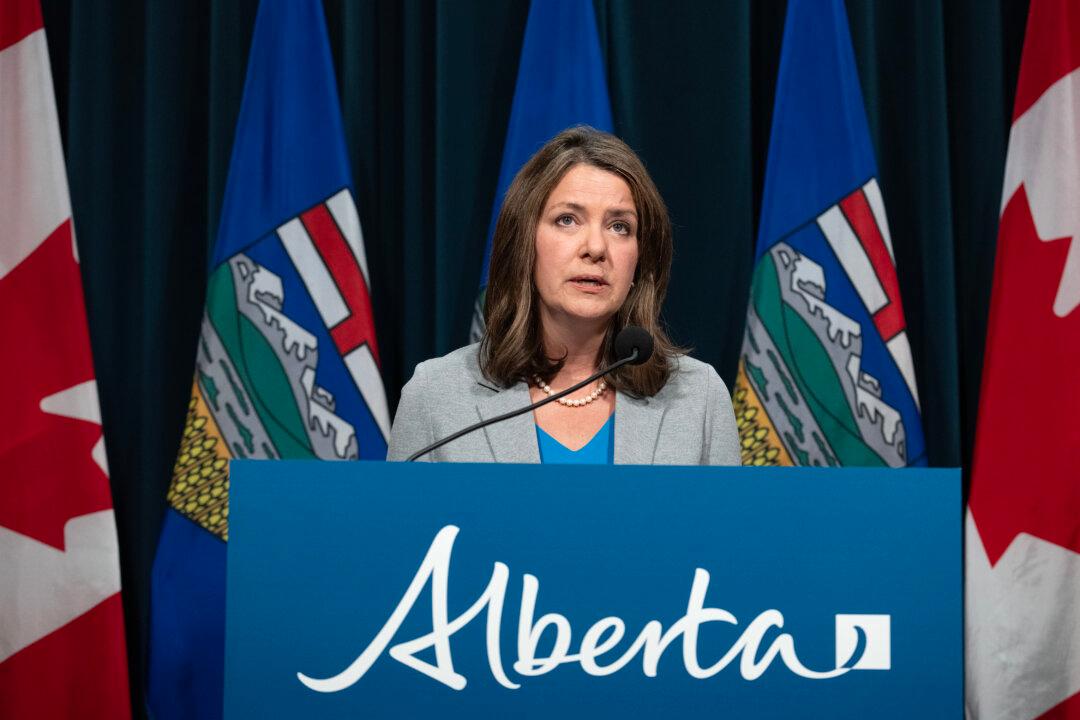OTTAWA—Alberta Premier Danielle Smith says the federal government’s greenhouse gas emissions reduction targets amount to a “shut-in policy” for her province’s energy sector, adding she hopes her meetings in Ottawa this week will be collaborative.
“When you have an unachievable and unrealistic time frame, it’s not an emissions reduction policy, it’s a shut-in policy,” Ms. Smith told reporters during a Feb. 5 press conference in Ottawa. “It’s a policy demand that would require us to shut in our production, and we’re just simply not going to do that.”





